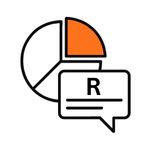
The rising cost of living in South Africa has become a major concern for households across the country, affecting everything from groceries and fuel to housing and utilities. Many families are finding it increasingly difficult to maintain their standard of living as inflation, high interest rates, and weak economic growth continue to put pressure on monthly budgets. In response, South Africans are adopting new financial habits, reassessing spending priorities, and seeking alternative ways to manage debt.
Key Takeaways
- South Africa Faces Persistent Economic Pressures: Despite its wealth in natural resources and a strong financial sector, South Africa continues to grapple with high unemployment, deep income inequality, and rising living costs driven by electricity shortages, currency weakness, and inflation.
- Household Expenses Continue To Climb: The average monthly living cost for a single person is around R11 000, while families spend over R30 000 excluding rent. Ongoing increases in fuel, food, and utility prices have made managing basic expenses more difficult for most households.
- Consumers Are Adopting New Financial Strategies: Many South Africans are reducing spending, relying less on credit, and seeking debt review to stay financially stable. Budgeting, managing debt responsibly, and finding ways to increase income have become key tools for coping with the cost of living crisis.
About Arcadia Finance
Simplify your borrowing journey with Arcadia Finance. Choose from 19 NCR-accredited lenders, pay no application fees, and enjoy a fast, secure loan comparison experience tailored to your financial situation.
The State of South Africa’s Economy
In 2025, South Africa’s economy continues to show a mix of promise and persistent difficulties. The nation possesses abundant natural resources, including gold, platinum, coal, and various other minerals, which remain central to its export earnings and overall economic structure. Alongside these resources, South Africa maintains a robust financial sector that plays a crucial role in supporting investment across the African continent and provides access to capital for both local and international enterprises.
Despite these strengths, the country faces deep-rooted economic challenges. Unemployment levels remain alarmingly high, while income inequality continues to divide communities and limit social mobility. The energy sector continues to struggle under the weight of load-shedding and inadequate infrastructure, which disrupts productivity and discourages business growth. Furthermore, political uncertainty and corruption allegations have weakened investor confidence and slowed economic reform efforts.
Data from the World Bank highlights that South Africa is the most unequal society in the world when measured by wealth distribution. Disparities are most visible across racial, gender, and educational lines, where poverty rates vary significantly. The highest levels of poverty are concentrated among black South Africans and individuals without access to formal education, underscoring the structural issues that continue to shape the nation’s economic outlook.

Insights from the 2025 Economic Survey
Arcadia Finance’s 2025 survey shows that many South Africans are still struggling with tight budgets, but they are adapting to survive financially.
Household Finances under Pressure
Nearly half of respondents said they have R0 to R1 000 left each month after paying essential bills, while most others have less than R3 000 remaining. This leaves little room for savings or emergencies.
Shifting Spending Patterns
Most households now spend at least 60 % of their income on necessities such as food, rent, and transport. Around one in three said all their income goes toward needs, with nothing left for wants or leisure.
Borrowing to Cope
More than 80 % of respondents hold some form of debt. Personal loans are the most common, followed by credit cards, while fewer people have home or vehicle loans.
Hope for the Year Ahead
Despite ongoing pressure, over half of respondents expect their situation to improve slightly in 2026, showing that optimism and resilience remain strong across South African households.
What Is the Average Cost of Living in South Africa?
If you live somewhere in South Africa, a single person’s monthly living expenses (excluding rent) may amount to around ZAR 11 000.
For a four-bedroom residence, you could expect monthly outlays (excluding rent) to reach approximately ZAR 30 000 to ZAR 32 000.
Property values and rent costs across South Africa tend to be lower than in many other countries. A 3-bedroom apartment on the outskirts of Cape Town might rent for about ZAR 23 000 per month.
The Factors Driving the Rising Cost of Living in South Africa
The increasing cost of living in South Africa is influenced by several key economic and structural factors that continue to place pressure on households and businesses across the country.
- Rising Utility Costs: The cost of electricity has climbed steadily as a result of ongoing infrastructure problems and maintenance backlogs. These issues have caused regular tariff increases, which have translated into higher monthly utility bills for both residential consumers and commercial users.
- Food Price Inflation: The price of essential groceries has surged in recent years, largely driven by disruptions in global and local supply chains, increased fuel costs, and unfavourable weather patterns that have affected crop yields. These challenges have pushed up the cost of basic food items, making everyday shopping more expensive for South African families.
- Transport Costs: Escalating fuel prices have had a direct impact on the cost of transportation. Motorists are paying more to run their vehicles, while public transport fares have also increased. This rise affects daily commuting expenses and the overall cost of moving goods across the country, influencing prices in almost every sector.
- Weakening Rand: The persistent volatility of the Rand has made imported goods and services more costly. As the currency weakens against major global currencies, import expenses climb, forcing businesses to adjust their pricing to maintain profitability, which in turn raises consumer prices throughout the economy.
How Households Are Adapting
South African households are showing remarkable resilience as they adjust to the ongoing cost-of-living crisis. With food, transport, and electricity prices rising faster than wages, families are finding creative ways to stretch every rand and make their income go further.

Cutting Back on Non-Essentials
One of the most common coping strategies is reducing spending on non-essential items. Families are dining out less, cancelling unused subscriptions, and postponing luxury purchases such as electronics and holidays. Many are switching to affordable store brands or shopping at discount retailers to save on groceries. Even small lifestyle changes, such as preparing home-cooked meals or reducing water and electricity consumption, have become vital in managing monthly budgets.

The Rise of Side Hustles and Freelancing
To supplement stagnant salaries, many South Africans are turning to side hustles or freelance work. From selling homemade goods online to offering tutoring, delivery services, or digital work, additional income streams have become a lifeline for many households. Social media platforms and online marketplaces have made it easier than ever to reach customers and generate income outside of traditional employment.

Budgeting and Debt Management Strategies
Households are also becoming more intentional about financial planning. Creating a clear monthly budget helps families prioritise essential expenses such as rent, food, and transport. Debt consolidation has gained popularity as a way to simplify multiple loan repayments into one manageable instalment. Many people are using comparison platforms like Arcadia Finance to find affordable loan options and ensure that they are borrowing responsibly.

Community and Family Support Systems
Communal support remains an important part of coping in tough economic times. Extended families often pool resources to share housing costs or childcare responsibilities. Neighbours exchange goods or services informally, helping one another manage expenses without needing extra cash. In some communities, stokvels and savings clubs continue to provide members with access to lump sums of money for emergencies or major expenses.

Financial Tools and Resources That Help
In the face of rising living costs, many South Africans are turning to financial tools and support systems that make it easier to manage money, reduce debt, and stay afloat. From government grants to private loan comparison platforms, these resources can make a significant difference in improving financial stability.
Government Support and Grants
Government assistance plays a crucial role for households struggling to make ends meet. Programmes such as the Social Relief of Distress (SRD) Grant, Old Age Grant, and Child Support Grant provide monthly financial support to millions of citizens. These payments help cover essential costs such as food, transport, and electricity. While grant amounts are modest, they remain a vital safety net for vulnerable individuals and families.
For students, the National Student Financial Aid Scheme (NSFAS) continues to help young South Africans access tertiary education without the burden of unaffordable tuition fees. In addition, the government has expanded various employment initiatives and training programmes aimed at improving long-term financial independence.
Credit Options: Loans vs Credit Cards
Access to credit can provide relief in times of financial strain, but it must be used responsibly. Personal loans are often preferred for covering larger or once-off expenses, such as home repairs, school fees, or medical bills, because they offer fixed repayment terms and predictable interest rates.
Credit cards, on the other hand, are useful for short-term purchases or emergencies, but high interest charges can quickly accumulate if balances are not paid off monthly. Understanding the difference between these two credit types allows borrowers to make informed choices that suit their individual circumstances.

Tips For Managing The Rising Cost Of Living
Coping with the rising cost of living requires a practical and disciplined approach to personal finance. By applying structured strategies, South Africans can better manage daily expenses and maintain financial stability during challenging times. Below are several detailed tips to help you handle your budget more effectively.
| Section | Details |
|---|---|
| Create And Stick To A Budget | Establish a clear budget that tracks all sources of income and every category of spending. Categorise your expenses into essentials and non-essentials to see where money can be saved. Regularly reviewing and adjusting your budget helps you maintain control and prevent overspending. |
| Reduce Energy Consumption | Electricity costs continue to rise, so using energy-efficient appliances and switching off unused lights can make a noticeable difference. Consider installing prepaid meters or solar panels where possible, as they can reduce long-term energy expenses and give you better control over your household consumption. |
| Shop Smart For Groceries | When buying groceries, compare prices between different stores and brands to find the best deals. Buying non-perishable items in bulk and supporting local markets can also save money. Planning meals and creating shopping lists before heading to the store helps prevent impulse buying. |
| Cut Back On Transport Costs | Transport is often one of the largest household expenses. Use public transport, carpool with colleagues, or walk and cycle whenever possible. Regular vehicle maintenance can also help improve fuel efficiency and reduce repair costs in the long run. |
| Reassess Housing Costs | If rent or bond repayments consume a large portion of your income, consider moving to a more affordable neighbourhood or downsizing to a smaller property. Homeowners might also explore refinancing options to reduce monthly instalments, while tenants could consider shared accommodation to lower expenses. |
| Limit Discretionary Spending | Take a closer look at your non-essential spending. Reducing outings, subscription services, and entertainment costs can free up more funds for savings or debt repayment. Setting monthly limits for leisure spending can help maintain financial discipline without completely cutting out enjoyment. |
| Increase Your Income | Look for opportunities to earn extra money through side jobs or part-time freelance work. Using your existing skills to provide tutoring, online services, or small business ventures can help boost income and offset higher living costs. |
| Focus On Debt Management | Pay off high-interest debt as quickly as possible to avoid unnecessary costs. Consider consolidating multiple debts into a single payment with a lower interest rate. Staying consistent with repayments helps protect your credit score and financial stability. |
| Take Advantage Of Loyalty Programmes | Many South African retailers and fuel stations offer loyalty rewards that can help you save. Register for loyalty cards to earn discounts or cashback on regular purchases, particularly groceries and fuel. These savings, though small at first, can accumulate over time. |
| Prepare For Emergencies | An emergency fund provides financial security when unexpected expenses arise, such as medical bills or vehicle repairs. Aim to save at least three months’ worth of living expenses in a separate account. This buffer can prevent the need for high-interest borrowing during difficult periods. |
Conclusion
South Africans continue to face significant financial strain as living costs rise across all major expense categories, from utilities to groceries and transport. However, many households are finding practical ways to adapt by reducing unnecessary spending, reassessing debt obligations, and using structured budgeting to maintain financial control. With disciplined money management, a focus on essential expenses, and awareness of debt relief options such as consolidation or debt review, South Africans can build greater resilience against ongoing economic pressures and protect their long-term financial wellbeing.
Frequently Asked Questions
The main contributors include higher electricity tariffs, fuel price increases, and food price inflation caused by supply chain disruptions and weak currency performance. These combined factors have led to broad increases in the cost of basic goods and services.
On average, a single person requires about R11 000 per month for living expenses excluding rent, while a family of four typically spends between R30 000 and R32 000 each month. Actual costs depend on location, lifestyle, and household income.
Individuals can create a detailed budget, reduce energy usage, shop strategically for groceries, and cut back on discretionary spending such as entertainment and luxury purchases. Using loyalty programmes and comparing prices also helps reduce monthly costs.
Debt review is suitable when a person can no longer meet monthly repayment obligations and is at risk of default. It provides legal protection and allows for restructured payments through a registered debt counsellor, helping consumers manage debt in an organised way.
Those facing rising living expenses can pursue side jobs, freelance work, or small-scale business opportunities that use existing skills. Many also find success by monetising hobbies, offering tutoring, or selling goods and services online.
Fast, uncomplicated, and trustworthy loan comparisons
At Arcadia Finance, you can compare loan offers from multiple lenders with no obligation and free of charge. Get a clear overview of your options and choose the best deal for you.
Fill out our form today to easily compare interest rates from 19 banks and find the right loan for you.



